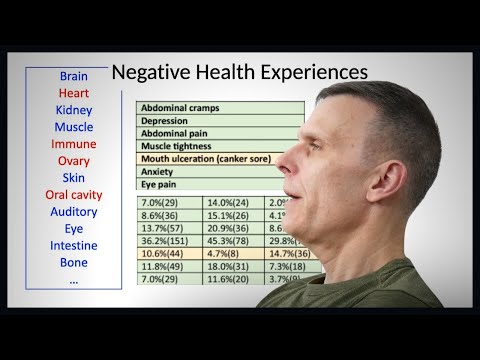Just found out that @mkaeberlein has his own podcast and has been releasing several videos on aging. Like and subscribe to Optispan! (Episode 1 and 2 below)
Optispan has a ‘Trail Blazer’ program. They’re looking for 100 early adopters.
https://www.optispan.life/concierge-wellness
The price you find out if you express an interest.
Total Kaeberlein groupie… can’t say enough how much I enjoy hearing this man talk.
Now, I’m curious to find out what his side effect was after the higher doses?
So keep us informed with his next episode.
@mkaeberlein talks about his supplement stack.
He supplements with D3, magnesium, B12, Omega-3, protein, and collagen. He also takes Inulin powder and Chia seeds. He also takes Creatine powder and a multivitamin (athletic greens). He’s also taking Rapamycin.
He’s considering tadalifil, CA-AKG, Urolithin A.
His rapamycin ‘cycle’ - 12 weeks, with six months to a year between cycles. Somewhere else he said it was 8mg/weekly, IIRC.
University of Arizona Assistant Professor of Molecular and Cellular Biology George Sutphin runs a lab that investigates genetic determinants of longevity, the effects of kynurenine-based interventions on lifespan, and environmental regulators of the aging process. George, who was an aerospace engineer before he discovered the promise of geroscience, completed his PhD at the University of Washington and worked as a postdoctoral associate at the Jackson Laboratory prior to his current faculty position. He currently serves as Chairperson of the American Aging Association. We sat down with George to talk about his research, including the effects of caffeine on lifespan and, more recently, his discovery of a new metabolite with the ability to greatly extend lifespan when given late in life. We also discuss George’s thoughts on biological age clocks, his own healthspan optimization protocol, and much more.
I think a lot about kaeberlein’s long rapa vacations. It is one of the reasons I added a week off every month. I’m still thinking about it. I also wonder what else we don’t know about other famous people’s rapa protocols (what they really do vs what they say or what gets reported).
I am not convinced that it is a good idea. I can’t find any animal studies or anecdotal evidence from users that this is beneficial.
After taking weekly doses for ~ 2 1/2 years and only taking a few times off for such things as having dental work etc., I have found no adverse effects from rapamycin.
Currently, I am thinking of switching to 1mg daily.
Aren’t you concerned about sarcopenia with a daily dose?
Perhaps you are right. The key is not to be certain. I’m not certain of what I am doing. I am trying to experiment with an open mind to find out what works for me (a little better, and then a little more). An open mind is harder than it sounds. And it takes more time to do right than I’m happy to invest.
Good luck to us all.
In the animal studies that I have looked at rapamycin while inhibiting muscle hypertrophy, also limits muscle loss and helps prevent sarcopenia in all dosage regimens.
" Inhibition of mTORC1 with rapamycin prevents age-related muscle loss. Consistent with the observation that the hyperactive mTORC1 induces muscle damage and loss, inhibition of mTORC1 activity with rapamycin or rapalogs protects aging muscle from atrophy in mice and rats"
Rapamycin protects aging muscle - PMC)%20Inhibition%20of%20mTORC1%20with%20rapamycin%20prevents,muscle%20from%20atrophy%20in%20mice%20and%20rats.
Be careful with a dose like that as it may put you in the immunosuppressive range of around 5 ng/mL. See this thread for more info. I just switched from 6 mg weekly to 1 mg every other day and plan to test my serum levels after a couple of weeks and every so often to be sure it never goes too high.
The fact that people think rapamycin suppresses the immune system is mainly based on its use for kidney transplants.
There is no evidence that I can find that taking rapamycin in the doses that forum members are taking suppresses the immune system, quite the opposite.
Check out the latest Mat Kaeberlein’s YouTube video where he extensively talks about rapamycin and the immune system.
Rapamycin’s SURPRISING Effects on Aged IMMUNE SYSTEMS
That study is just about correcting over active mTOR by testing with TSC1 knockout mice. So, yes, over active mTOR as commonly seen in old age does cause sarcopenia and that’s why we use rapamycin to tame that over activity.
“Consistent with the observation that the hyperactive mTORC1 induces muscle damage and loss, inhibition of mTORC1 activity with rapamycin or rapalogs protects aging muscle from atrophy in mice and rats.”
“We believe the ultimate effect of mTORC1 depends upon: 1) how mTORC1 is activated, and 2) for how long mTORC1 remains activated. Akt-dependent, short-term activation of mTORC1 appears usually to be beneficial to cells, whereas Akt-independent, chronic activation of mTORC1 appears to be detrimental to cells. It is well known that mTORC1 is an important anabolic regulator that is essential for cell growth, regeneration, and maintenance of muscle mass,”
“Additional work building on these studies needs to be done which would include: 1) Developing selective mTORC1 inhibitors. Selective mTORC1 inhibitors may minimize side effects that may result from rapamycin-induced suppression of mTORC2, a known activator of Akt. 2) Developing optimal protocols for rapamycin treatment. Optimized dose, dosing frequency, and dosing intervals may help achieve maximum beneficial effect.”
This paper does not say that. It says that rapamycin when used to correct over active mTOR can prevent sarcopenia but that it is very much dose, frequency and interval dependent.
Agree with that, but your idea of taking 1 mg daily will likely get you to what is considered an immunosuppressive serum level of about 5 ng/mL. It’s not at all equivalent or similar to taking 6 mg/wk due to the half life and pharmacokinetics of daily dosing. Read that whole thread I posted above and you’ll see - this post in particular: Trying a daily Rapamycin Dose Change - #32 by MAC










